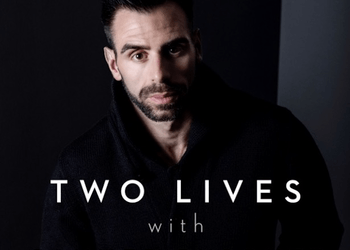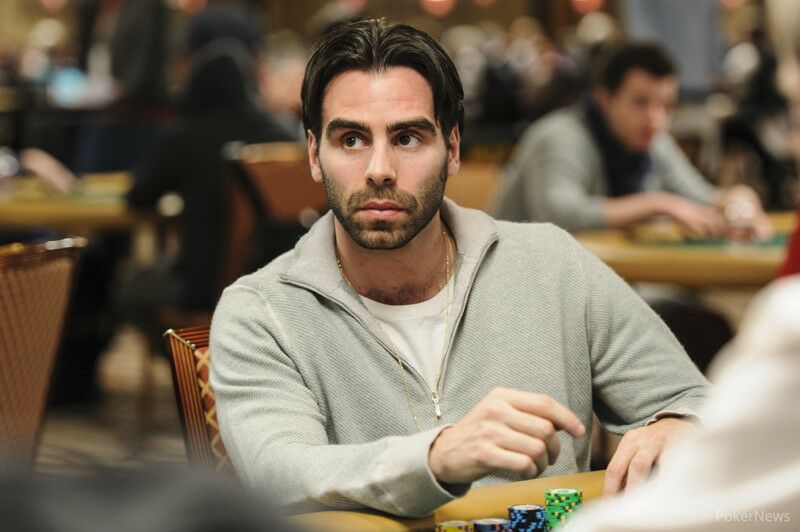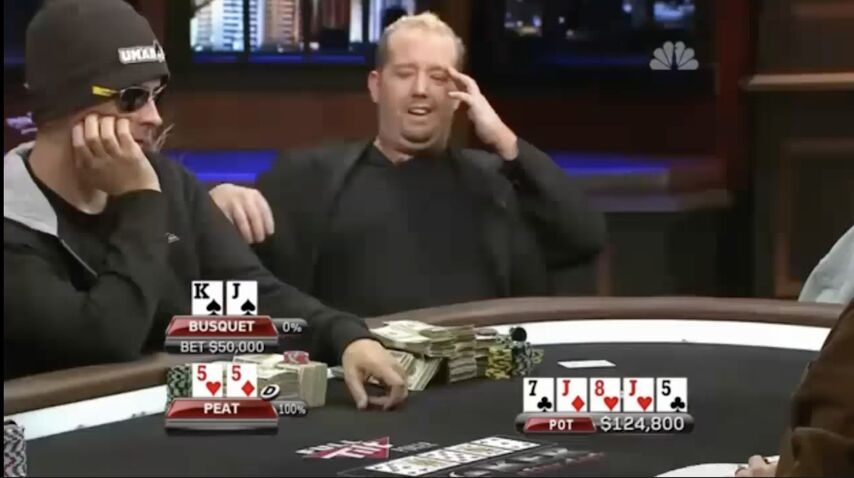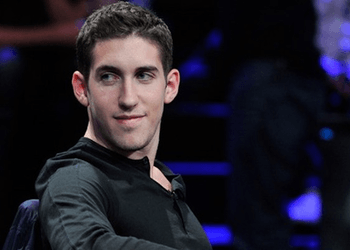The hero of the latest episode of "The Grid" was Olivier Busquet, and he recalled a hand played back in 2011 on the Poker After Dark show. a $400/$800 cash game was played, and Olivier's opponent was the famous gambler David "Viffer" Peat.
– Hello everyone, today my old friend, Olivier Busquet, is visiting me. Let's discuss his hand with KJs, which he played in 2011. Let's get straight to the point, tell us what do you remember about that game?
– Hello, Jen. Many years have passed, but I remember that hand very well. It's funny that we play thousands of hands throughout our lives, most of which are insignificant, but some of which are forever engraved in memory. 2011 was the beginning of my poker career. Naturally, I mean live, because by that time I had been playing on the Internet for many years. It was my first experience on a TV show and by far the biggest game of my career. It didn't go well, and that day is still one of the worst days of my poker career.
– But at the table you looked very calm, how did you manage to control yourself? You yourself said that in your youth you had a huge problem with tilt.

– I have always had a different attitude to online and offline. First of all, this is down to the speed of the game. My internet tilt has never been the result of a single hand, it has built up over time. It began to seem to me that the moving would never stop, and I simply could not restrain myself any longer. And when you play several heads-up tables, this is especially acute. Offline, everything goes very slowly and there is always the opportunity to exhale, calm down and relax. Another important factor for me is that live I am in front of everyone, and it would be just a shame to start tilting in front of other players. I can't remember a single instance of ever tilting in a live game. And at that time, not only were my rivals watching me, but also a huge TV audience, including my parents. Plus, during filming, I was in a state of shock – I was lucky to be at the same table with Phil Laak, Howard Lederer and others. Now there may be different attitudes to the level of their game, but at that moment they were considered real poker legends, and I was an unknown newcomer. I will not hide it, even at that time I had no doubt that I was playing better, but the very fact of playing at the TV table had a big impact on me.
Were you as calm on the inside as on the outside?
– I have always had a frivolous attitude to live poker. Because the variance of a live game cannot be covered by any distance. I think that even among professionals, not everyone is aware of the role of luck in live poker. Online, it was common for me to have 20-30k hand stretches, during which I was torn apart without standing a chance. And there was nothing I could do about it, they were just handing out cards. Can you imagine how many years it will take live for such volume? We all know successful tournament players, but I'm sure there are hundreds of equally talented poker players we've never heard of. They were not lucky in a couple of tournaments at the very beginning of their career, and they decided not to continue. Therefore, I never perceived live as a source of income, and did not play very often. My main profession has always been online. And I perceived the live game only as a hobby,

Let's get back to the show. Before this hand, were you already at a decent loss?
– Yes, but I don’t even remember how much I lost. But the amount was decent, despite the fact that I managed to recoup a little with against the of Lederer.
– What was the attitude towards Lederer then?
– I don’t remember when the show went on the air, but we filmed right before Black Friday. He had not yet become the public enemy number one of the poker community. That evening the producers put together a really impressive line-up of Greg Mueller, Eli Elezra and Viffer, against whom I played that very hand. The game was very big, but I didn't even sell action. I said to myself: “Is it possible to lose at such a table? It's the chance of a lifetime." Naturally, I was immediately punished for such arrogance. I still wonder where I got that attitude from. We played cash, which I had no experience with at all. In recent years, cash has really become my main specialty, and now I am ready to play in any lineup with rare exceptions. I think my poker self-esteem is at its peak right now.
– If you were offered to choose any opponents to your taste, who would you choose? Not in terms of profit, but interest and fun.
– It is hard to say. For some reason, it is considered that it is much more interesting to watch the game of old school players, but I never agreed with this. We're still reaping the benefits of 2000s marketing when poker sites spent millions of dollars advertising a small group of players. Of course, among them there are also strong players who know how to keep up the conversation at the table and have a great sense of humor. But most of them have become popular only because they complain very loudly about bad beats, whine at the table and insult opponents. If you want to hear specific names, then recently I really liked the final of some tournament on Poker GO with Bryn Kenney and Sean Perry. I don't mean the level of the game, but the entertainment component.
Bryn, in my opinion, is one of the most interesting characters in poker, he always rejected the theoretical component and achieved incredible success. I remember one absurd hand he played where he min 4-bet out of position with 98o with 35bb stack. Naturally, this is not to be found in the charts, but such tricks often work for Bryn.
Let's move on to hand. So, at the table, Howard Lederer, Greg Mueller, Phil Laak, Eli Elezra and Viffer…
– Yeah, and everything I said about Bryn Kenney can be attributed to Viffer, and even more so. I don't know if he always played like this or if he targeted me, but he played every hand, played in a completely crazy style and did some incredible moves.
Played $400/$800, he opened $2,000 from the button, I 3 bet from the BB, raised to $7,000 with . Today I would raise much more – $10-12k. Effective stacks are around 100-150BB, I don't remember exactly. He called, the flop came offsuit . I bet $10k and I still like that sizing today. In this spot, it's best to start polarizing your range right away. We can't make a small bet with a very wide range, we don't have that advantage. And it would seem that I chose exactly that sizing to knock out exactly his hand. Even with ATs, it's better to continue in this spot than with fives. But my bet didn't work, he called. Another jack came on the turn. To be honest, I didn't really think much about the theory back then – if you hit the turn, you can bet more, especially against a guy who doesn't fold anything at all. I made a bet of $20k and, despite outward calmness, I was very nervous. This was caused by the unpredictability of the opponent and his random aggression. Yes, I have trips, but on this board it's a very vulnerable combination. He played in a crazy style, but he could easily hit a straight or a full house. Could I throw my thrips out if he showed aggression? Against other opponents, I would seriously think about it, but not against David.
On the turn I bet $20k into a $34k pot and he called fairly quickly. This call still doesn't seem like a very smart move to me, but I was even more struck by his behavior.

When a five came up and I bet $50k, he clowned with his full house: “Oh no, you definitely have something… Sevens or eights? What should I do?" He seemed to finally realize that I really had something, and I hadn't been bluffing on previous streets. At the same time, he himself made almost the nuts and obviously had to raise. But he limited himself to just calling and even said that he couldn’t throw it away, but he wasn’t going to raise either. After that, he took some more time and finally called.
The whole session went in this style, I constantly had the second nuts.
Some will think that I was very upset at the showdown. But in fact, no matter how ridiculous it may sound, I, on the contrary, was delighted – he played terribly. If he had a straight, I would be much more upset, because it would confirm that I had completely misjudged the situation. And so I played well, he was just unrealistically lucky. After the broadcast, I received a lot of nice words from friends who praised me for my behavior and self-control at the table. I was younger, and it was important to me, now I'm not so interested in what others think of me.
What is the worst hand you would raise the river with if you were him?
– With a straight for sure, maybe even with . I also find it easier to call with a jack on the river than with a straight because it blocks full houses. Viffer was right that he didn't want to call me light. I have practically no bluffs on this river, most likely no one has them at all. This is one of the weird live spots where players often hero fold and in theory you should be bluffing. But in practice, no one bluffs like that, and people still hero-fold.
– Assuming you decide to bluff after all, what hands are best suited for this?
– Which block straights and suited combinations of .
Doug Polk was reviewing this hand and said you should have checked the turn.
Yes, I saw his video. I think it's not a mistake to bet or check with KJ. Doug and I have a completely different approach to poker, for him theory comes first. I do not quite agree with this, although I also think that it plays an important role. At the peak of his career, Doug competed with the strongest players in the world, there is nothing without excellent theoretical preparation. But the fact is that in 99% of line ups we are confronted by opponents whose game is infinitely far from optimal. One of the worst mistakes a professional player can make is trying to copy a solver. Theoretical decisions are very sensitive, if you make the slightest inaccuracy, your whole strategy will collapse. I don't deny that theory is very useful for general understanding of poker, it helps to better find exploit opportunities.
Tell me about your podcast. You recorded a few episodes, they were received very well, but then you just abandoned it. Why?

– I also really liked doing this, but now I myself can’t say what the future of that project is. Over the past 8 months, my life has changed dramatically. I fell in love, moved to New Jersey and bought a house there. I have less free time, and the podcast requires careful preparation. If I wanted to, I would still find the time, but the spark has gone. During the pandemic, I moved away from the poker community a bit, which also affected it. I stopped playing live and left twitter, it became simply unbearable exist there. I play online every day, but I don't communicate with any of the players. I won’t be able to make regular releases, and recording a podcast once every three months is pretty pointless.
This has always been my problem – I am very fond of something, I completely surrender to a new idea, but quickly lose motivation. There were many such examples and, probably, it is no coincidence that I did not achieve success in anything other than poker.
– I know that you pay great attention to the psychology of the game. Can you list a couple of important points that are usually overlooked?
– The first thing that comes to mind is that the idea of “becoming the best” has been cultivated in our society since early childhood. It seems to me that this is not very good. We see interviews only with the most successful and best representatives of their professions. And this is normal, the audience is interested in the most successful people. We are told about their hard work, diligence and so on. But no one says what they sacrifice to reach the top. And a lot has to be sacrificed. And we must admit that we all have a different limit of possibilities. I don’t know what determines this, probably just luck at birth. Unrealistic goals are imposed on us from childhood, instead of teaching people to soberly assess their capabilities. And impossible goals just lead to disappointment and psychological problems.











